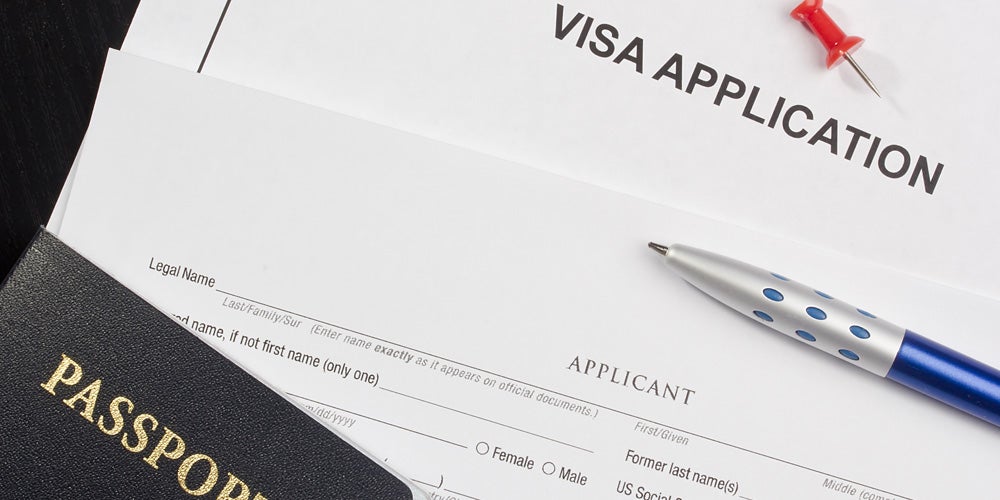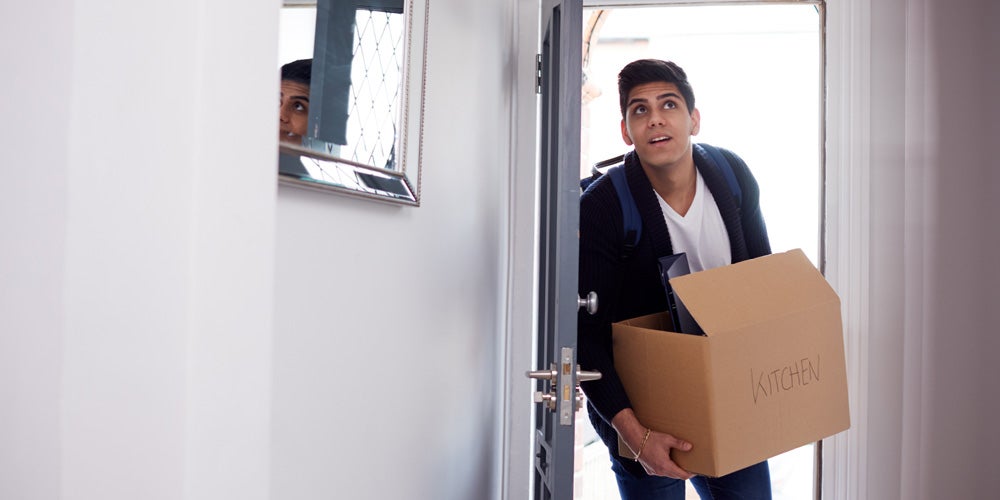
YOUR COMPLETE STUDY ABROAD PREPARATION CHECKLIST: READY, SET, GO ABROAD!
Congratulations! You’ve found a great study program that aligns with your goals. Now, it's time to embark on the next chapter of your academic journey and embrace the transformative experience of studying abroad.
While packing your suitcase and renewing your passport are essential steps, preparing for a study abroad adventure requires a more comprehensive approach. Luckily, we’re here to help. This checklist will guide you through the process of ensuring a smooth and successful transition into your new environment overseas.

1. Organise your documents
Studying abroad comes with managing numerous documents, papers, and applications. Which is probably why you’ll need to have everything organised from the beginning (it’ll save you from last-minute panic).
The most important document of all is, of course, your passport. Make sure that it’s valid and in order. If not, contact your local immigration department to ensure your passport is good for travel.
You might also need a student visa, depending on the country you enter. Each country has its own set of visa requirements, so do research the regulations of your desired study abroad destination. It’s also a good idea to reach out to the embassy or consulate of the country you intend to visit for details on visa requirements and travel restrictions.
Remember: visa application processes can take up to several months, so it’s best to avoid procrastination. You may also be subject to a physical and background check, depending on your destination country, so be ready for these prerequisites.
2. Secure your finances
When preparing to study abroad, you’ll need to have enough money to pay for the trip. This includes the money you’ll spend during your time abroad. Our tip? Always assume that you’ll spend more money than you expect. So make sure to exchange a healthy amount of money to the local currency, and have a credit card ready for emergencies and bigger expenses. Don’t forget to inform your credit card company of your travel plans.
You can also consider exploring various funding options, including scholarships, grants, loans, and part-time work opportunities, to lessen the financial load that could come with studying abroad.

3. Plan your living arrangements
Now that you have your documents and financial situation sorted out, it’s time to think about your accommodation.
Will you be living on campus or off campus? The choice is usually down to personal preference. Living off-campus offers more freedom, whereas living on-campus can be more cost efficient.
Common housing options include:
- On-campus residencies: Usually the safest option, especially if it’s your first time going abroad alone, staying on-campus allows you to be closer to your classes and provides more opportunities to make friends. However, this comes with minimal privacy, as you will be sharing a lot of spaces with your dorm mates, including the washroom.
- Host family: This is a great way to experience a unique immersion into the local culture and customs. Living with a host family provides valuable insights into daily life and allows you to build genuine connections with the community.
- Renting off-campus: This option provides you with greater autonomy and personal space, allowing you to set your own rules and maintain a flexible schedule. You can rent a room in an apartment or share accommodation with other international students – or even local ones – to split the rent and save money.
4. Get insurance
It’s always best to have reliable health and accident insurance coverage while studying abroad. This includes both medical expenses and coverage for emergency evacuation and repatriation. Many health insurance providers offer some coverage abroad, but it’s essential to supplement it with comprehensive travel insurance.
Travel insurance typically covers expenses that your regular health insurance may not, such as:
- Coverage for flight delays or cancellations
- Lost or stolen personal belongings
- Emergency evacuation due to a medical emergency or natural disaster
Investing in travel insurance provides peace of mind and financial protection against unforeseen circumstances, allowing you to focus fully on the enriching experience of studying abroad.
5. Research the local customs
Take some time to familiarise yourself with your host country. Having an understanding of the culture, history, geography, economy, government, and other aspects of your host country will not only enrich your study abroad experience, but also help you navigate social situations with ease and avoid cultural blunders.
By understanding the cultural nuances of your new environment, you'll be better equipped to connect with the locals, appreciate their customs, and avoid culture shock and unintentional missteps. This cultural immersion will enhance your overall experience and make your study abroad journey even more transformative.

6. Learn basic phrases in the local language
It’s always good to learn some “survival” phrases in your destination country’s language. Proficiency in the local language will enable you to communicate effectively with your fellow students, deepen your cultural immersion, and navigate your surroundings and day-to-day situations with greater confidence.
This will open doors to new friendships, enhance your understanding of local customs, and allow you to fully embrace the richness of your study experience in a foreign country.
7. Get a medical check-up
Make sure to set an appointment with a doctor for a thorough medical examination before you go. This is to avoid finding out about potential underlying health complications only when you are already in your host country – it’s always better to err on the side of caution.
Maintaining optimal health is crucial when embarking on a study abroad adventure, as you'll be constantly adapting to new surroundings, navigating unfamiliar territory, and juggling multiple responsibilities. Falling ill while being away from your familiar support network of friends and family can be a daunting experience, especially when navigating different healthcare systems and cultural norms.
8. Shop for an affordable flight ticket
The earlier you shop or research for a flight ticket, the easier it will be for you to bag a bargain. Ticket fares can vary depending on your flight dates and where you’re buying your ticket from.
We recommend arriving at least a few days prior to the start of your chosen university course. This will give you time to adjust to your new environment and help with recovery from jet lag. Importantly, make sure that your visa is in line with your arrival date to avoid problems at immigration.

9. Start packing (duh!)
Now comes the best part – packing your bags!
Don’t forget to research the weather in your host country, so you’ll know exactly what to pack. Be aware of weight limits and item restrictions, too, so you won’t have to worry about having to unpack and repack everything at the airport when the time comes.
Study Abroad with UniFastTrack Transition Program Online
Looking to fast-track your entry to your dream university abroad? Join UniFastTrack Transition Program Online (TPO), a fully online pathway program certified by UNSW College and delivered by OpenLearning.
Apply with your pre-university results and complete the program in just 4 months, 100% online. Schedule a call with our Student Advisors to find out more.